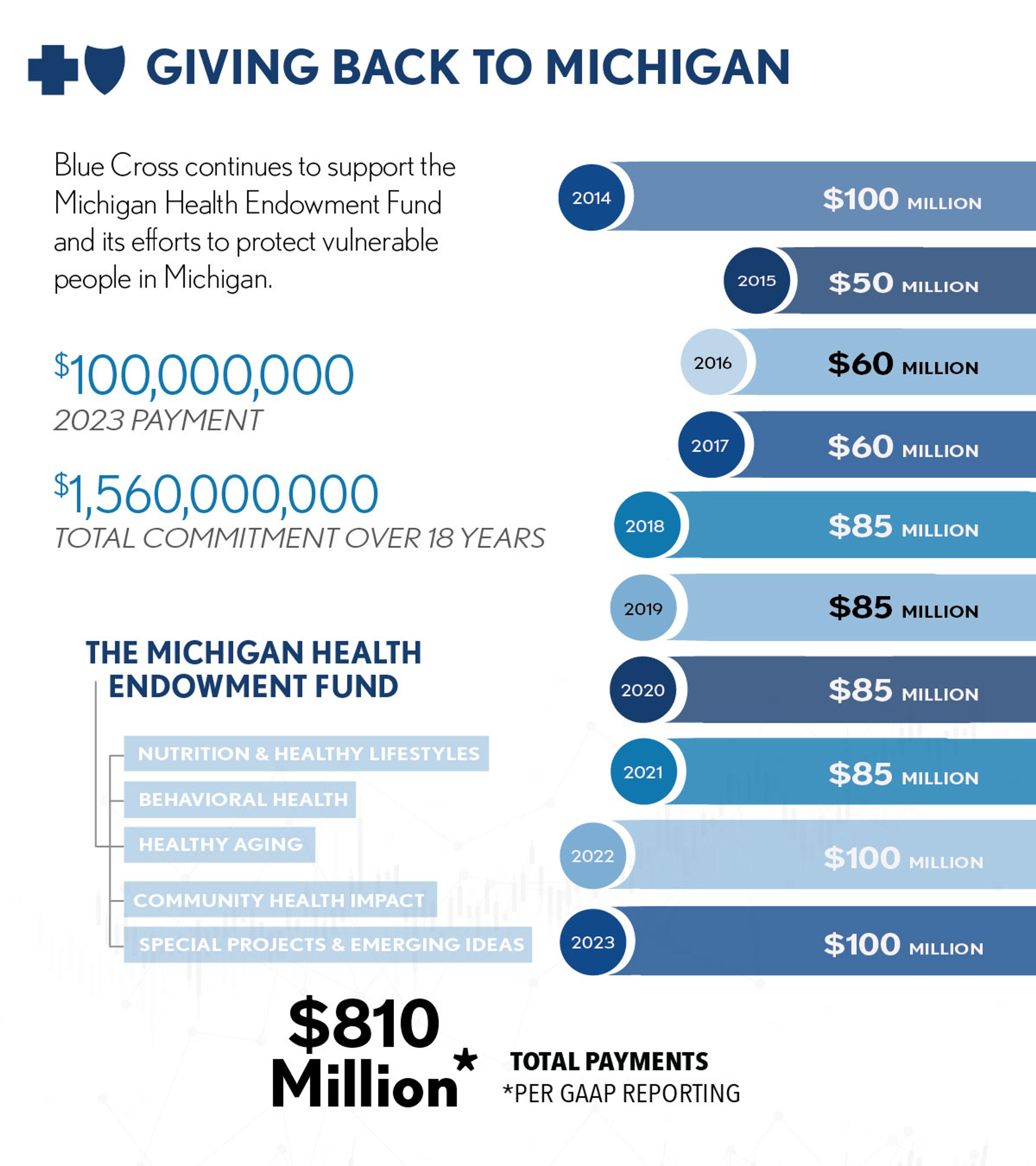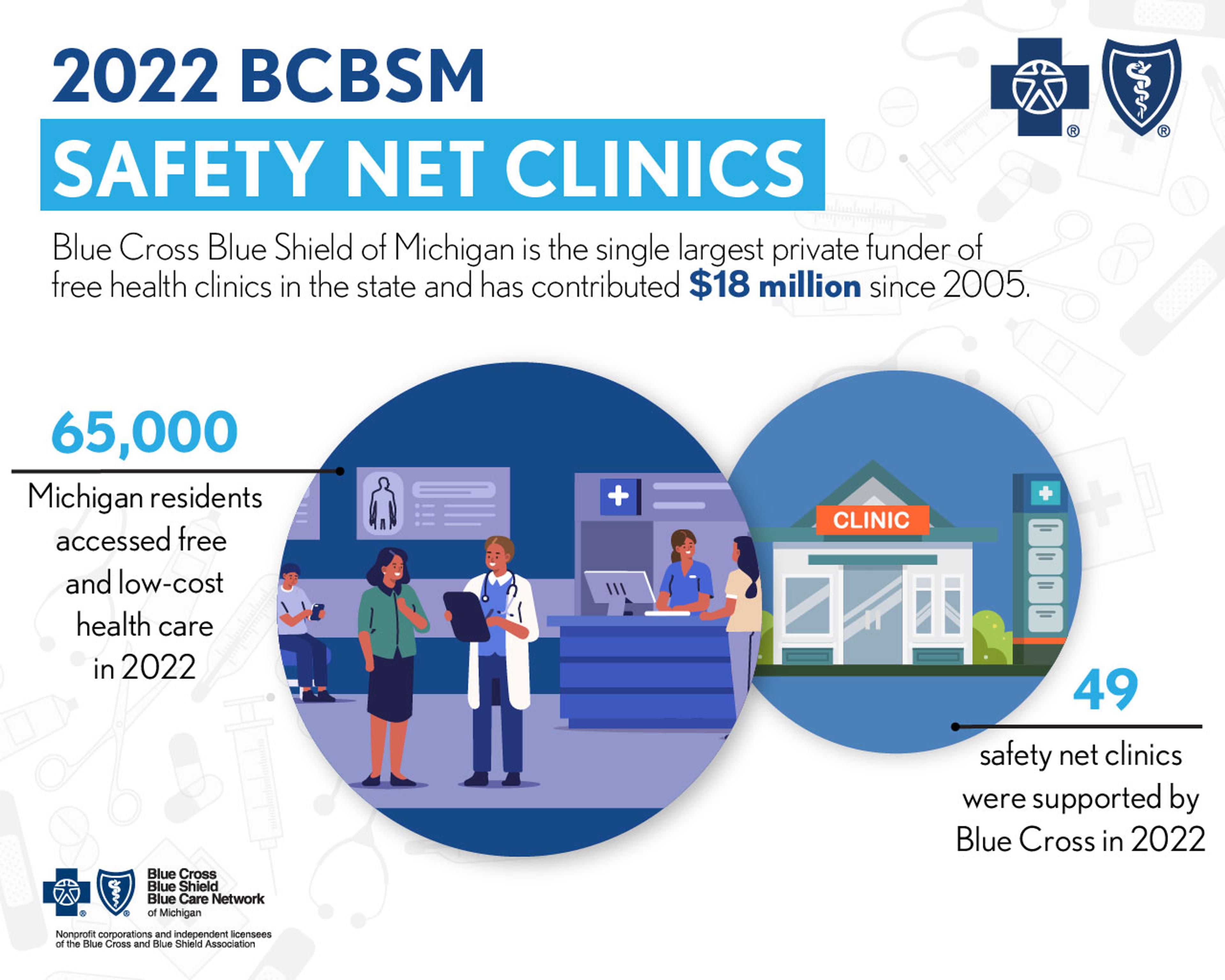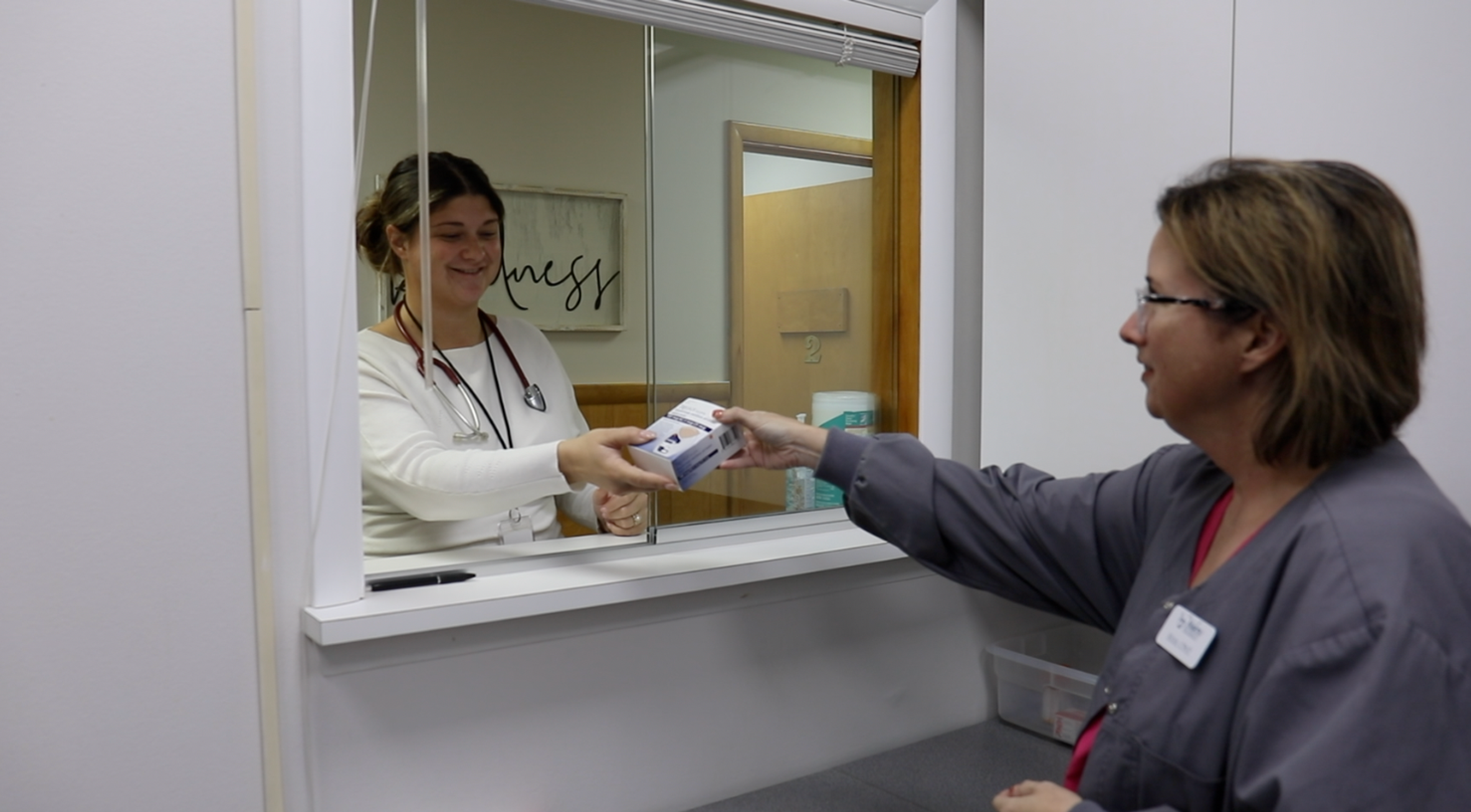How Philanthropy is Improving the Health of Michigan’s Communities
Amy Barczy
| 5 min read
Amy Barczy is a former brand journalist who authored content at Blue Cross Blue Shield of Michigan. Prior to her time at Blue Cross from 2019-2024, she was a statewide news reporter for MLive.com. She has a decade of storytelling experience in local news media markets including Lansing, Grand Rapids, Holland, Ann Arbor and Port Huron.

For some children and teens living in Manistee County, focusing on school can be difficult.
In this small, mostly rural community in the northwestern corner of the Lower Peninsula, children and teens are at a higher risk for behavioral challenges. Their community experiences above-average rates of drug overdose and excessive alcohol use. And about half the students in Manistee Area Public Schools are economically disadvantaged.
That’s why the school district created a new program helping the most vulnerable students with wraparound services, kickstarted by philanthropic funding, to help them succeed in school and make it to graduation.
Philanthropy like this plays a critical role in improving the well-being of Michigan communities by supporting efforts that target social determinants of health.
Targeting social determinants of health
As much as half of a person’s long-term health is determined by social and environmental factors, including income, education and employment status. These are called social determinants of health, and can result in negative, lifelong health outcomes.
Many community-level organizations including schools and nonprofits have connections and programming aimed directly at helping those most at risk – but are limited in their scope due to funding or other resource constraints.
Nationally, many health care payers are engaging in partnerships and collaborative projects with existing community-level organizations to reach more people in need.
In the Mitten state, Blue Cross Blue Shield of Michigan pays out millions in grants to community organizations each year through multiple philanthropic organizations – like in the case of the Michigan Health Endowment Fund, which helped kick start the school-based health center in Manistee.
As the sole patron of the Health Fund, Blue Cross is committed to paying $1.56 billion to the Health Fund over the course of 18 years. Much of this funding is being invested to create a sustainable, long-term resource to improve the health of Michigan residents for generations to come. Each year, the Health Fund awards grants to more than 100 organizations help them serve more people in communities across the state.

In addition to the $100 million Blue Cross contributed to the Health Fund in 2022, Blue Cross also contributed $2.96 million to 81 organizations in every region of the state through its BCBSM Foundation. The Foundation improves the health of Michigan residents by supporting health care research and innovative health programs to improve access to care.
Education as a health factor
Students who don’t complete high school are at a higher risk for chronic conditions like diabetes and heart disease – and are more likely to experience poor health and to die early. Not graduating is also linked to limited job opportunities in the future – which could mean lower wages and long-term economic struggles.
Beginning in the 2019-2020 school year, Manistee Area Public Schools started offering behavioral health and medical care to students at four of their school buildings. This pilot program was launched in partnership with Northwest Michigan Health Services and CentraWellness, and made possible by philanthropic funders including the Michigan Health Endowment Fund.
The results were so successful – helping nearly 300 students at more than 1,300 visits with their mental and physical health – that the school district made these resources permanent. They started the MAPS Child & Adolescent Health Center, which provides wraparound services to students with a holistic approach to wellbeing. With their mental and physical health needs met, students can better focus on school so they can graduate.
Healthy behaviors for life
In addition to local efforts like the project in Manistee, the impact of health philanthropy can be felt on a statewide level. Across Michigan, children in more than 200 schools are eating healthier foods, walking more and doing better in school thanks to an ongoing program made possible through a collaborative philanthropic effort.
The Building Health Communities program has helped more than 500,000 students since 2009. Currently, 210 schools are in the program during the 2022-23 year.
This program gives principals, teachers and staff the resources and tools to help teach their students healthy behaviors for life – and it has proven results: participating students eat 40% more fruits and vegetables than the national average, move 35 minutes more per week, spend less time in front of screens, do better at math and reading and have an easier time paying attention in class. These improvements in nutrition and activity are linked to lowered risks of cardiovascular disease over the long-term.
Blue Cross helped establish the Building Healthy Communities Program. Today, BCBSM is among 15 funders of the program, along with the Michigan Department of Education, Michigan Department of Health and Human Services, Michigan Elementary and Middle School Principals Association, Michigan Fitness Foundation, the Health Fund, Michigan Recreation and Park Association, Michigan State University Extension, Michigan Virtual, OK2SAY, SHAPE Michigan, Transforming Research into Action to Improve the Lives of Students (TRAILS), United Dairy Industry of Michigan, the University of Michigan and Wayne State University Center for Health and Community Impact.
Providing a safety net
Too often, finances can get between people and the health care they need, as many individuals opt out of preventive services – putting them at greater risk for worse health outcomes.
Approximately 40% of Americans would struggle with $400 for an unexpected bill. Which means in an emergency – like a job loss, car crash or major setback – could affect their lives for years to come. And about 25% of households in Michigan struggle to afford basic necessities, though they live above the federal poverty level.

Safety net clinics help fill the gaps for individuals struggling to make ends meet, offering free and low-cost mental and physical health care. These clinics are supported through a network of funders, including philanthropic giving.
In Michigan, Blue Cross is the single largest private funder of free clinics in the state – distributing $18 million to help more than 220,000 patients at safety net health clinics since 2005. In the past year, more than 65,000 residents visited a clinic supported by Blue Cross.
By working alongside community organizations, health payers like Blue Cross are intervening in social determinants of health to improve outcomes for all.
Photo credit: Getty Images





